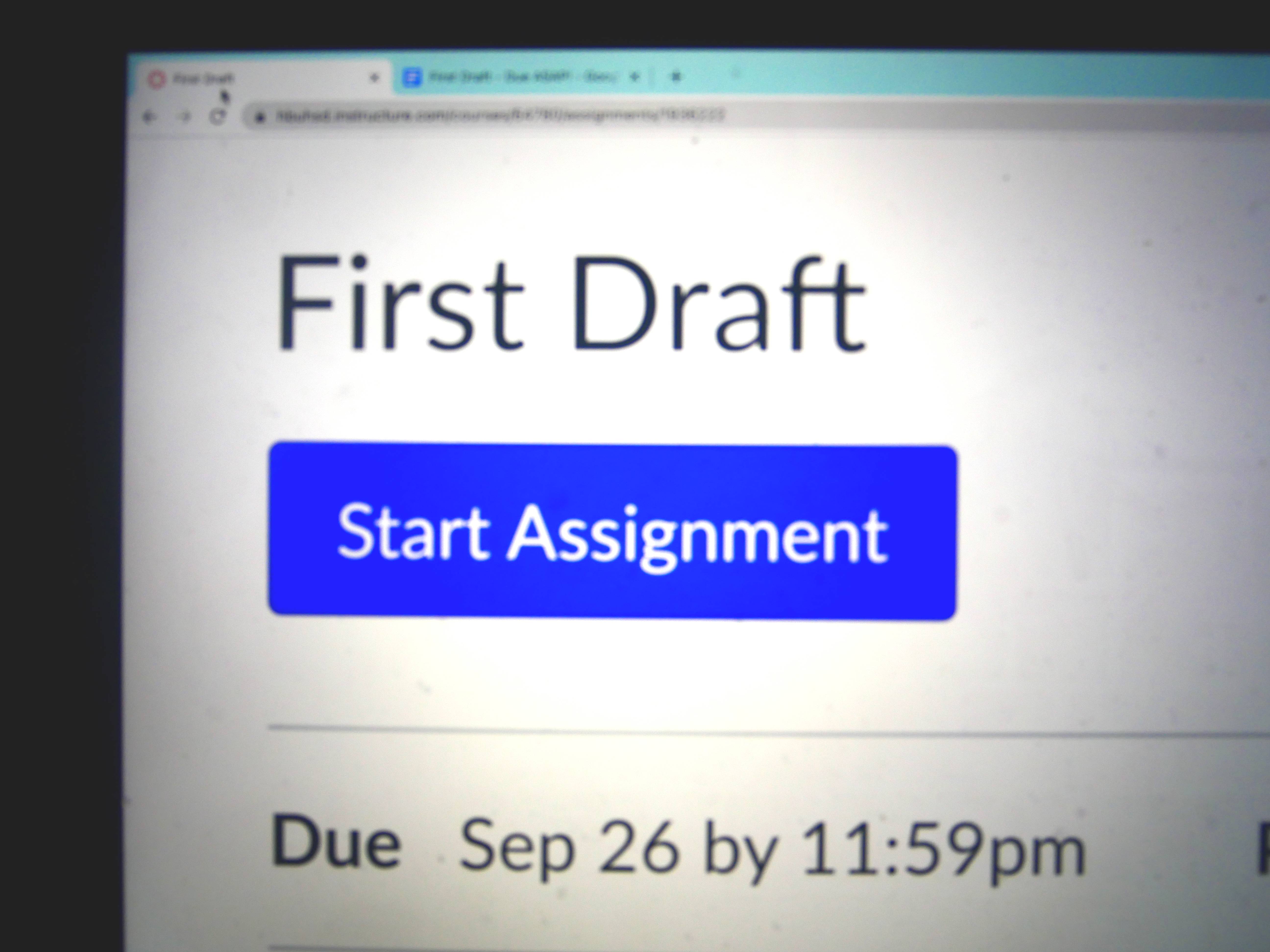
By Katelynn Luu
It’s 5 p.m. on a weekday, and you’ve finally arrived home after a long, tiring day at school and sports practice. All you want to do is to crash into bed and take a severely-needed nap, but you can’t. As you open your computer, the reason why glares at you from the screen: a seemingly endless list of assignments, all due within the next couple of hours.
The rise of technology and online sites such as Canvas and Google Classroom have led to online assignments and submissions that don’t have to be physically handed to a teacher in person. Fountain Valley High School in particular uses Canvas for grades and assignments, allowing students to submit their assignments outside of class. Teachers have also utilized Canvas to make deadlines outside of school hours.
However, students should not be responsible for turning in assignments once their school day is over.
According to “Homework Best Practices for Teachers” provided by the Huntington Beach Union High School District, teachers should “consider flexibility in due dates and point structure… [and] be respectful of student time.”
Setting due dates outside of school hours is not respectful of student time. It takes away flexibility for students’ schedules outside of school by choosing for students what time they must complete their homework.
If a student is tired from a long day after school and their extracurriculars, they may wish to take a nap and start homework later or to sleep early and do their homework in the morning when they are more well-rested. Due dates outside of school hours take this choice away from them, forcing students to stay awake to complete their assignments on time, which can also affect the quality of their completion.
These deadlines also force students to rush their assignments, which can lead to lower-quality work. Students are more focused on getting the assignment done for the grade and avoiding late penalties rather than actually learning, which is the purpose of homework. The rushed assignments also receive poor grades, which is a major cause of anxiety in students.
Students have a life outside of school. They juggle extracurricular activities such as sports, clubs, family responsibilities, jobs and more. It’s no secret that students carry a lot of stress. So why add to it by making them stressed over a due date that is outside of class time?
“I set [due dates] at 9:59 p.m. because I don’t want my students working past that time if they have waited to the last minute,” English teacher Joseph Barro said. “I always give at least… three or four days to do [the assignment].”
However, these assignments due at night are not the only ones that students have. Rather than allowing students to sleep earlier, these due dates only affect the order that students complete their assignments. Students will finish assignments that are due first, but then stay up late to complete other homework that does not have such impending deadlines or to study for a test.
Even if an assignment is given multiple days for completion, making it due outside of class is unfair to those who are unable to start their homework until later in the day. For some students, starting their homework earlier isn’t an option due to extracurriculars they may participate in.
“I have basketball practice until 6:30 [p.m.] so I get home around 6:40,” sophomore Emily Tran said. “After I eat dinner and shower, [I start homework at] 7:30 or so.”
For example, if an assignment is due in three days, students with few commitments who are able to start their homework earlier have those entire three days to finish the assignment. On the other hand, students who get home late only have two days and a few hours. This time disparity can lead to lower quality of completion and learning.
An alternative to these deadlines is to not make assignments due until class starts. Making an assignment due at 8:30 on Wednesday morning instead of 11:59 on Tuesday night can make a difference in alleviating student stress and benefits their learning. It gives students more time and flexibility to complete assignments while ensuring they are still finished before class.
“I go to sleep at 10 p.m. and wake up at 5 a.m. to do my homework,” junior Lily Tran said. “Sleeping early is like a reward after a long day, but it only works when my teachers recognize the usefulness of 8:30 a.m. deadlines.”
High school is a time when students learn to be more independent and responsible for their education, including time management. Students should be able to choose when to complete their assignments, and schools should not have control over the time students complete their assignments when the school day is already over.





